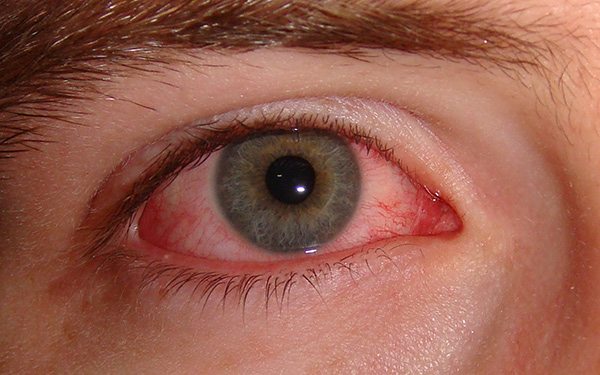Pink eye, or conjunctivitis, is known for spreading like wildfire during Thailand’s rainy season.
Over 47,000 people have already contracted pink eye between January and May of this year, reports Thai PBS. That number is expected to increase further as the rainy season facilitates the transmission of viral and bacterial infections.
The Diseases Control Department have found that the areas showing the highest incidence of pink eye are Mae Hong Son, Si Sa Ket, Ubon Ratchathani, Saraburi and Amnart Charoen.
What is pink eye?
The surface of your eye is lined with a membrane called the conjunctiva. When viral or bacterial conjunctivitis (commonly known as pink eye) is introduced to the eye, this membrane becomes swollen and red — hence, the name ‘pink eye’.
Pink eye is very contagious and consequently very common, especially among children where thorough hand-washing practices can often be lacking. Generally, the condition is not serious and will usually clear up in less than two weeks although you should still consult your doctor who will be able to diagnose you quickly.
Symptoms:
- Bloodshoot-looking eye
- Swollen eyelids
- A green/yellow sticky eye discharge (common in bacterial conjunctivitis cases)
- Itchy eyes
- Watery eyes

An eye with pink eye (in the public domain)
What causes pink eye?
The most common cause of pink eye is an infection caused by a virus (like the common cold) or bacteria. Bacterial conjunctivitis can lead to serious complications if not effectively treated so be sure to consult your doctor – it’s generally characterised by a eye discharge that can stick the eyelids together during sleep.
Allergies, dry eyes and certain chemicals can also cause pink eye.
How to avoid pink eye
Piyasakon Sakonstayathorn, minister for public health, has made a statement that all health offices across Thailand have been instructed to advise the people in their area on how to protect themselves against the disease – particularly in places like schools, malls and offices.
Children will be told to avoid entering ponds and other water catchment areas as the dirty water could see them infected.
Otherwise, you should take care to do the following:
- Wash your hands thoroughly, particularly when in a public place
- Cover your mouth and nose when coughing and sneezing
- Avoid rubbing your eyes
- Keep surfaces in your home clean
- Never share contact lenses and always follow the correct replacement and care instructions
- Never share tissues or wash cloths
What to do if you get it
If you do find yourself suffering with pink eye, it’s always best to consult your doctor. While viral conjunctivitis cannot be treated and should just run its course within about 10 days, your doctor can prescribe antibiotic ointments and eye drops for people suffering with bacterial conjunctivitis. There can be serious complications if bacterial conjunctivitis isn’t treated. Your doctor will also be able to advise you if there are any other problems with the eye as it can be difficult to self-diagnose.
You should also avoid wearing contact lenses until the infection has completely abated.
You shouldn’t return to school or work until the pinkeye has improved, in order to stop the spread of the infection, according to Web MD.


